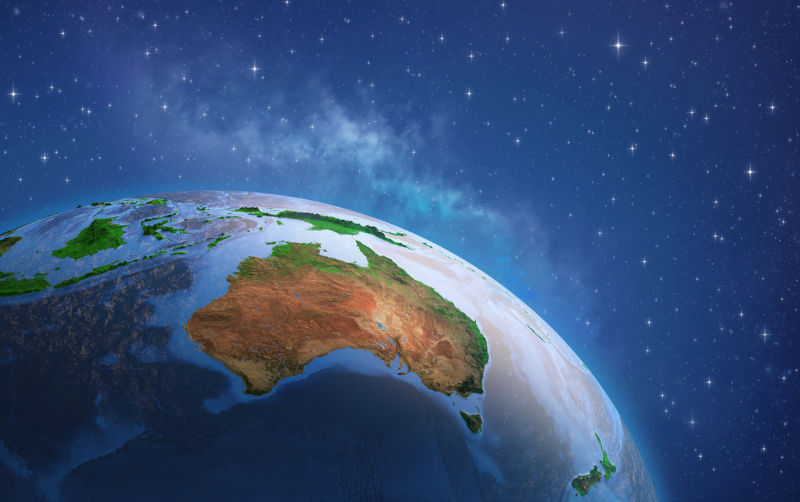Australias special responsibilities
May 4, 2023
Do some states have special responsibilities or obligations to help solve collective action problems as a consequence of their position in the international system? Australia should.
Policymakers and the general public may find it hard to believe, but academics who study international relations for a living occasionally come up with good ideas. They certainly come up with lots of bad ones, too, many of which provide the rationale and justification for spending money we dont have on weapons systems that may actually make cataclysmic war more likely, not less.
Nevertheless, the idea that some states may have special responsibilities because of their particular place in the international system is one thats worth at least considering.
Unfortunately, this idea is primarily associated with the United States, whose leaders frequently see themselves as fulfilling some sort of unique historical mission. Responsibilities dont get much weightier. The baleful consequences of this delusion are increasingly clear.
Thankfully, Australias leaders have never suffered from this misapprehension, at least. And yet, Donald Hornes well-known scepticism notwithstanding, Australia really is a uniquely lucky country: it turns out having an entire continent to ourselves and being a long way from everyone else is an unparalleled natural advantage, albeit one that generations of Australian policymakers have generally been slow to recognise.
Indeed, the only noteworthy exception to this rule has been the approach to illegal immigrants, asylum seekers and the like. Theres an untroubled bipartisan consensus that keeping control of our borders is a security and political danger of the first order. And yet, were perfectly happy to welcome people with desirable skills who have often been trained at great expense in countries with more urgent need of their expertise than us.
Given our remarkable and entirely arbitrary good fortune, largely based on the fortuitous presence of vast resource wealth, this all seems a tad selfish, to put it delicately.
Does Australias remarkable luck and relatively benign strategic circumstances mean, in fact, that it has a moral obligation to behave well, even to demonstrate what responsible behaviour might look like in a world consumed by a very old-fashioned form of inter-state rivalry and geopolitical competition, which threatens us with destruction, not least because we are not able to concentrate on dealing with climate change?
I think so. But to borrow a hackneyed clich, we are currently part of the problem rather than the solution. Indeed, our collective national behaviour is making it increasingly possible, even likely, that there may not actually be a solution to the problem of environmental degradation in this island continent, let alone impoverished countries more badly affected by global warming and consumed by internal conflict and/or failures of governance.
What might we do? For a start, stop adding to the problem by rapidly transitioning to renewable energy. We might even consider closing down the coal industry immediately as a gesture of how seriously we take our responsibility to be a good international citizenespecially as our per capita CO2 emissions are some of the highest in the world.
Equally ambitiously, we might, cancel the stage 3 tax cuts and use the money to help rebuild Sudan, Syria and, of course, the white folks in Ukraine. Not only would this do wonders for our international reputation, but it wouldnt even affect the budget bottom line as the money has already been written off as a gift for the wealthiest members of our own country.
If we were serious about being a responsible international actor, we might even think about trying to develop an independent approach to foreign and strategic policy that might even spur others to copy our example. We could even put our more useful military manpower at the service of United Nations peace keeping operations. The fact that this is a completely unimaginable possibility tells us much about the impoverished political imagination in this country.
Much the same point could be made about just about any other state you might wish to nominate, no doubt, but that doesnt really get us of the hook, or decisively demolish the argument that good behaviour is not only possible, its actually necessary if we are to survivein anything approaching a civilised manner, at least.
Even fabulously fortunate Australia is not going to enjoy a prosperous and secure future in a rapidly deteriorating global context. Without a global pact between rich and poor to tackle climate change were doomed, according to UN Secretary General Antnio Guterres. Environmental degradation will exacerbate existing conflicts, create a biblical exodus of climate refugees, and generally add to the epidemic of anxiety that is very understandably affecting the young.
So even if Australian policymakers dont think they have a special responsibility to the rest of the world or the much-invoked but seldom seen international community, they really ought to have one towards their own children. But if they cant even deal with the crisis of homelessness and poverty in such enviable domestic circumstances, they really arent likely to be up to saving the planet. But if we cant with all our good fortune, who can?

